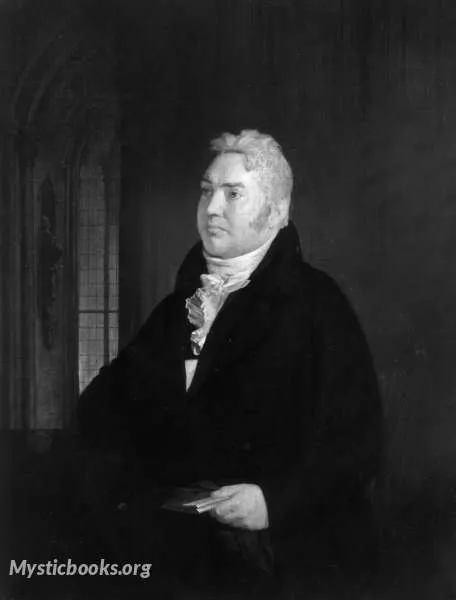
Timeline
Title
Country/Nationality
Samuel Taylor Coleridge
Samuel Taylor Coleridge was an English poet, literary critic, philosopher and theologian who, with his friend William Wordsworth, was a founder of the Romantic Movement in England and a member of the Lake Poets. He also shared volumes and collaborated with Charles Lamb, Robert Southey, and Charles Lloyd. He wrote the poems The Rime of the Ancient Mariner and Kubla Khan, as well as the major prose work Biographia Literaria. His critical work, especially on William Shakespeare, was highly influential, and he helped introduce German idealist philosophy to English-speaking culture. Coleridge coined many familiar words and phrases, including "suspension of disbelief". He had a major influence on Ralph Waldo Emerson and American transcendentalism.
Throughout his adult life Coleridge had crippling bouts of anxiety and depression; it has been speculated that he had bipolar disorder, which had not been defined during his lifetime. He was physically unhealthy, which may have stemmed from a bout of rheumatic fever and other childhood illnesses. He was treated for these conditions with laudanum, which fostered a lifelong opium addiction.
Coleridge was born on 21 October 1772 in the town of Ottery St Mary in Devon, England.[ After his father died in 1781, 8-year-old Samuel was sent to Christ's Hospital, a charity school which was founded in the 16th century in Greyfriars, London, where he remained throughout his childhood, studying and writing poetry.
At Jesus College, Coleridge was introduced to political and theological ideas then considered radical, including those of the poet Robert Southey with whom he collaborated on the play The Fall of Robespierre. Coleridge joined Southey in a plan, later abandoned, to found a utopian commune-like society, called Pantisocracy, in the wilderness of Pennsylvania. In 1795, the two friends married sisters Sara and Edith Fricker, in St Mary Redcliffe, Bristol, but Coleridge's marriage with Sara proved unhappy. He grew to detest his wife, whom he married mainly because of social constraints. Following the birth of their fourth child, he eventually separated from her.
A third sister, Mary, had already married a third poet Robert Lovell and both became partners in Pantisocracy. Lovell also introduced Coleridge and Southey to their future patron Joseph Cottle but died of a fever in April 1796. Coleridge was with him at his death.
In 1796 he released his first volume of poems entitled Poems on various subjects, which also included four poems by Charles Lamb as well as a collaboration with Robert Southey and a work suggested by his and Lamb's schoolfriend Robert Favell. Among the poems were Religious Musings, Monody on the Death of Chatterton and an early version of The Eolian Harp entitled Effusion 35. A second edition was printed in 1797, this time including an appendix of works by Lamb and Charles Lloyd, a young poet to whom Coleridge had become a private tutor.
In 1796 he also privately printed Sonnets from Various Authors, including sonnets by Lamb, Lloyd, Southey and himself as well as older poets such as William Lisle Bowles.
Coleridge made plans to establish a journal, The Watchman, to be printed every eight days to avoid a weekly newspaper tax. The first issue of the short-lived journal was published in March 1796. It had ceased publication by May of that year.
Coleridge died in Highgate, London on 25 July 1834 as a result of heart failure compounded by an unknown lung disorder, possibly linked to his use of opium. Coleridge had spent 18 years under the roof of the Gillman family, who built an addition onto their home to accommodate the poet.
Books by Samuel Taylor Coleridge
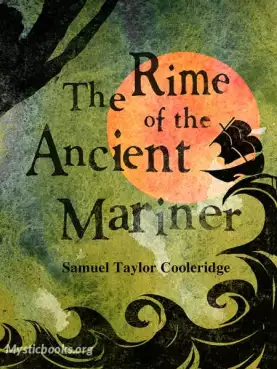
The Rime of the Ancient Mariner
"The Rime of the Ancient Mariner" (originally "The Rime of the Ancyent Marinere") is the longest major poem by the English poet Samuel Taylor Coleridge, written in 1797–98 and published in 1798 in the first edition of Lyrical Ballads. Some modern edi...
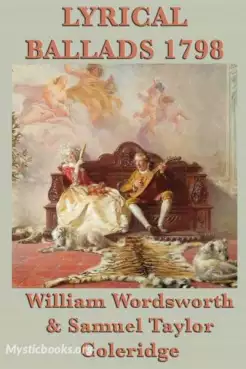
Lyrical Ballads (1798)
Lyrical Ballads, with a Few Other Poems is a collection of poems by William Wordsworth and Samuel Taylor Coleridge, first published in 1798 and generally considered to have marked the beginning of the English Romantic movement in literature. The imme...
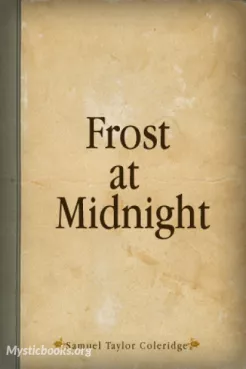
Frost at Midnight
In the silence of a winter night, a poet contemplates the beauty of nature and the power of imagination. "Frost at Midnight" is a poem by Samuel Taylor Coleridge that was first published in 1798. The poem is set in a cottage in the Lake District, an...
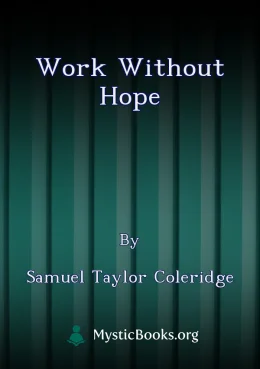
Work without Hope
LibriVox volunteers bring you nine different recordings of Work without Hope, by Samuel Taylor Coleridge, in honor of Labor Day. This was the weekly poetry project for the week of September 3rd, 2006.
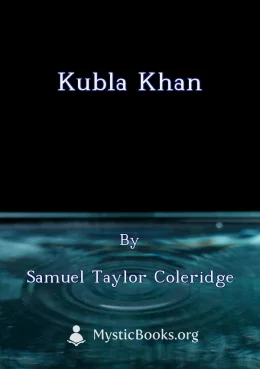
Kubla Khan
LibriVox volunteers bring you 19 different recordings of Kubla Khan by Samuel Taylor Coleridge. This was the weekly poetry project for the week of June 24th, 2007.
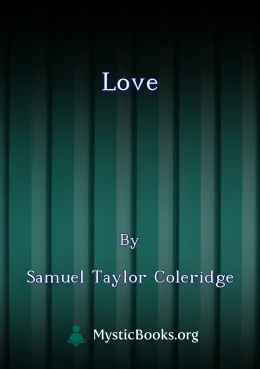
Love
The poem Love by Samuel Taylor Coleridge is romantic and emotional. It focuses on the tender, intense feelings of love, admiration, and longing between the narrator and Genevieve.

Something Childish, but very Natural
This poem explores the beauty and innocence of childhood, and the way in which it can be lost as we grow older. It is a nostalgic look back at a time when life was simpler and more carefree.
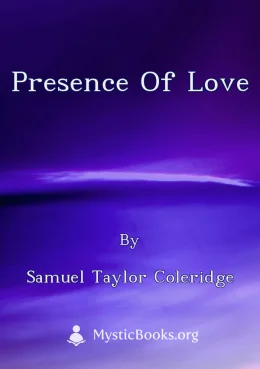
Presence of Love
“Presence of Love” is a collection of poems by Samuel Taylor Coleridge that explores the multifaceted nature of love. Coleridge, known for his lyrical and evocative style, delves into themes of romantic love, divine love, and the profound connection...
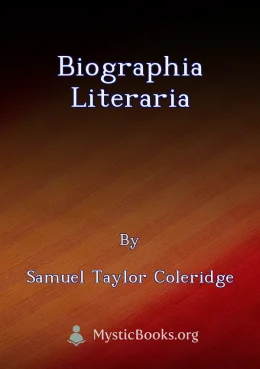
Biographia Literaria
Biographia Literaria, meaning "Literary Biography" in Latin, is a work by Samuel Taylor Coleridge that defies easy categorization. It blends elements of autobiography, literary criticism, philosophical inquiry, and personal reflection. Coleridge use...